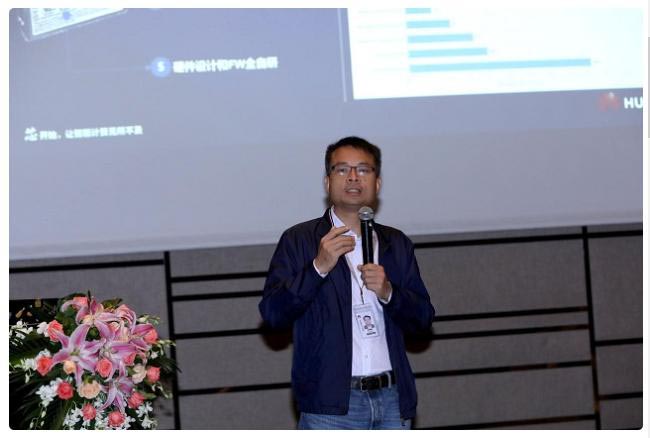Huawei hosted the first flash forum in China, announcing framework of application-aware storage.
As the amount of available data grows, the overabundance of information becomes increasingly difficult to manage. The “information explosion” phenomenon describes the rapid increase in the amount of published information or data and its consequences. Increasing information requires more storage capacity, resulting in increasing storage costs.
Under such circumstance, Huawei held the first Huawei Flash Technology Forum in Beijing. Aiming to take a look into the future development of flash and forge a win-win industry ecosystem, Huawei proposed an application-aware storage concept and shed some light on the future SSD development.
Huawei is an independent, privately-held company that provides Information and Communications Technology (ICT). With integrated solutions across four key domains — telecom networks, IT, smart devices, and cloud services — Huawei is committed to bringing digital to every person, home, and organization for a fully connected, intelligent world.
Huawei proposed an open application-aware storage framework, called the Framework of Application-aware Storage (FAS). FAS provides a one-stop solution that addresses the data structure and protocol disparity between different layers of the flash ecosystem. This solution implements application awareness and intelligent adaptation at the bottom layer, allowing SSDs at the bottom layer to sense the data type (hot, warm, cold) and size of the upper layer and adapt intelligently. The solution removes the bottlenecks of enterprise-grade SSD application performance, improves customers' service experience with storage applications, and greatly reduces infrastructure costs.
In addition, Huawei proposed a new standard for future SSDs. Currently, the industry has a wide array of server form factors, leading to vastly varying requirements for SSDs. Huawei now proposed the PALM SSD standard, which features larger capacity, higher performance, and better ease of use, reducing construction and operation costs for customers.
At present, the storage industry is undergoing tremendous changes. With the development and wide application of new flash technologies, the flash industry is facing new opportunities and challenges. The forum focused on the research of Huawei's self-developed SSD flash technologies and applications. It also provided a platform for ecosystem collaboration and communication to explore new flash technologies as well as the latest trends in the flash industry.

Zhao Chunhui, General Manager of Intelligent Accelerator Components, Huawei Intelligent Computing Business Dept, said that Huawei is building all-scenario intelligent computing solutions based on a wide range of proprietary core chips. Huawei introduces the intelligent acceleration engine into its servers to implement intelligent offload for compute, storage, and network protocols. The intelligent acceleration engine boosts service experience, reduces operation costs, and increases return on investment (ROI). As an important part of the intelligent acceleration engine, Huawei's intelligent SSD controller chip integrates algorithms optimized for applications to provide superior data medium and deliver new levels of application acceleration capabilities
A tireless innovator in the technology forefront, Huawei was the industry's first to put forth the concept of FAS. Huawei works with industry partners to forge the advancement of the flash industry and empower enterprise customers with more intelligent, convenient, and efficient storage application experience.
